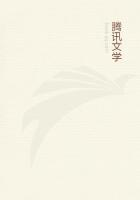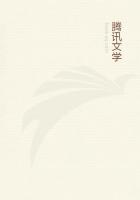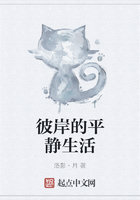This began to be alarming. It looked not so much as if Christianity was bad enough to include any vices, but rather as if any stick was good enough to beat Christianity with.
What again could this astonishing thing be like which people were so anxious to contradict, that in doing so they did not mind contradicting themselves? I saw the same thing on every side.
I can give no further space to this discussion of it in detail; but lest any one supposes that I have unfairly selected three accidental cases I will run briefly through a few others.
Thus, certain sceptics wrote that the great crime of Christianity had been its attack on the family; it had dragged women to the loneliness and contemplation of the cloister, away from their homes and their children. But, then, other sceptics (slightly more advanced) said that the great crime of Christianity was forcing the family and marriage upon us; that it doomed women to the drudgery of their homes and children, and forbade them loneliness and contemplation.
The charge was actually reversed. Or, again, certain phrases in the Epistles or the marriage service, were said by the anti-Christians to show contempt for woman's intellect. But I found that the anti-Christians themselves had a contempt for woman's intellect; for it was their great sneer at the Church on the Continent that "only women" went to it. Or again, Christianity was reproached with its naked and hungry habits; with its sackcloth and dried peas.
But the next minute Christianity was being reproached with its pomp and its ritualism; its shrines of porphyry and its robes of gold.
It was abused for being too plain and for being too coloured.
Again Christianity had always been accused of restraining sexuality too much, when Bradlaugh the Malthusian discovered that it restrained it too little. It is often accused in the same breath of prim respectability and of religious extravagance. Between the covers of the same atheistic pamphlet I have found the faith rebuked for its disunion, "One thinks one thing, and one another," and rebuked also for its union, "It is difference of opinion that prevents the world from going to the dogs." In the same conversation a free-thinker, a friend of mine, blamed Christianity for despising Jews, and then despised it himself for being Jewish.
I wished to be quite fair then, and I wish to be quite fair now; and I did not conclude that the attack on Christianity was all wrong.
I only concluded that if Christianity was wrong, it was very wrong indeed. Such hostile horrors might be combined in one thing, but that thing must be very strange and solitary. There are men who are misers, and also spendthrifts; but they are rare. There are men sensual and also ascetic; but they are rare. But if this mass of mad contradictions really existed, quakerish and bloodthirsty, too gorgeous and too thread-bare, austere, yet pandering preposterously to the lust of the eye, the enemy of women and their foolish refuge, a solemn pessimist and a silly optimist, if this evil existed, then there was in this evil something quite supreme and unique.
For I found in my rationalist teachers no explanation of such exceptional corruption. Christianity (theoretically speaking) was in their eyes only one of the ordinary myths and errors of mortals.
THEY gave me no key to this twisted and unnatural badness.
Such a paradox of evil rose to the stature of the supernatural.
It was, indeed, almost as supernatural as the infallibility of the Pope.
An historic institution, which never went right, is really quite as much of a miracle as an institution that cannot go wrong.
The only explanation which immediately occurred to my mind was that Christianity did not come from heaven, but from hell. Really, if Jesus of Nazareth was not Christ, He must have been Antichrist.
And then in a quiet hour a strange thought struck me like a still thunderbolt. There had suddenly come into my mind another explanation.
Suppose we heard an unknown man spoken of by many men. Suppose we were puzzled to hear that some men said he was too tall and some too short; some objected to his fatness, some lamented his leanness; some thought him too dark, and some too fair. One explanation (as has been already admitted) would be that he might be an odd shape.
But there is another explanation. He might be the right shape.
Outrageously tall men might feel him to be short. Very short men might feel him to be tall. Old bucks who are growing stout might consider him insufficiently filled out; old beaux who were growing thin might feel that he expanded beyond the narrow lines of elegance.
Perhaps Swedes (who have pale hair like tow) called him a dark man, while negroes considered him distinctly blonde. Perhaps (in short) this extraordinary thing is really the ordinary thing; at least the normal thing, the centre. Perhaps, after all, it is Christianity that is sane and all its critics that are mad--in various ways.
I tested this idea by asking myself whether there was about any of the accusers anything morbid that might explain the accusation.
I was startled to find that this key fitted a lock. For instance, it was certainly odd that the modern world charged Christianity at once with bodily austerity and with artistic pomp. But then it was also odd, very odd, that the modern world itself combined extreme bodily luxury with an extreme absence of artistic pomp.
The modern man thought Becket's robes too rich and his meals too poor.
But then the modern man was really exceptional in history; no man before ever ate such elaborate dinners in such ugly clothes. The modern man found the church too ****** exactly where modern life is too complex; he found the church too gorgeous exactly where modern life is too dingy.
The man who disliked the plain fasts and feasts was mad on entrees.
The man who disliked vestments wore a pair of preposterous trousers.

